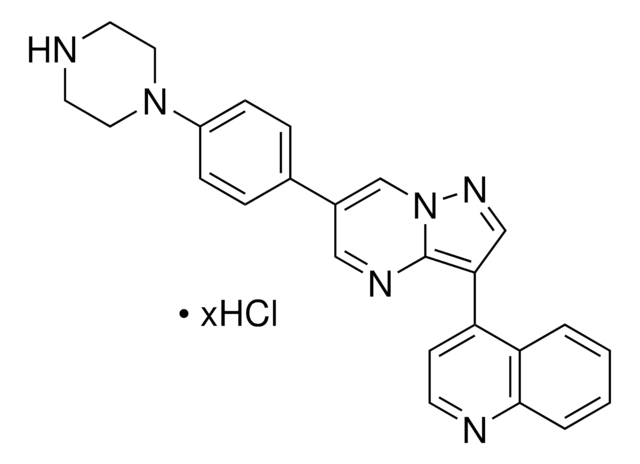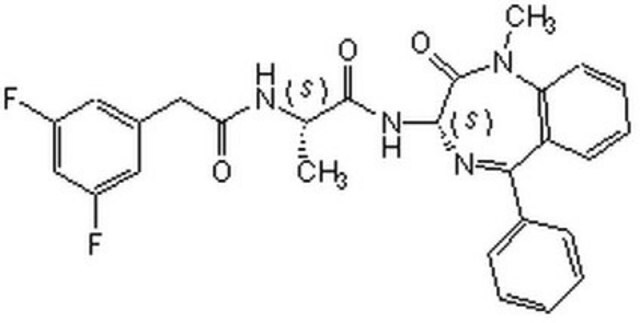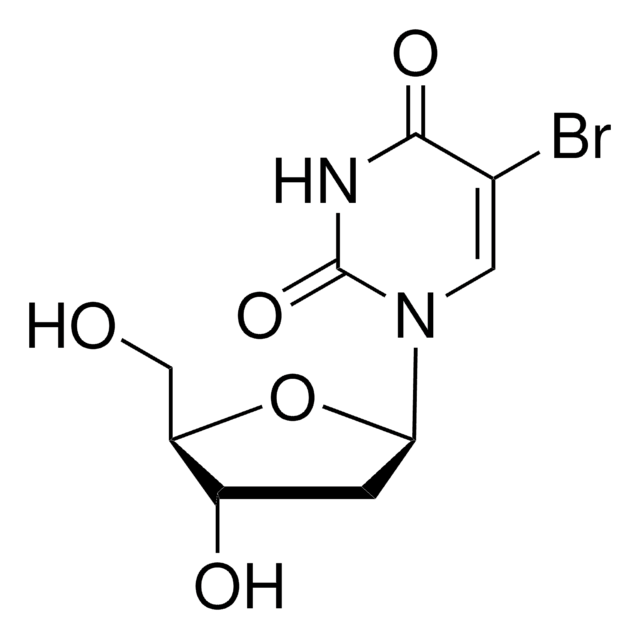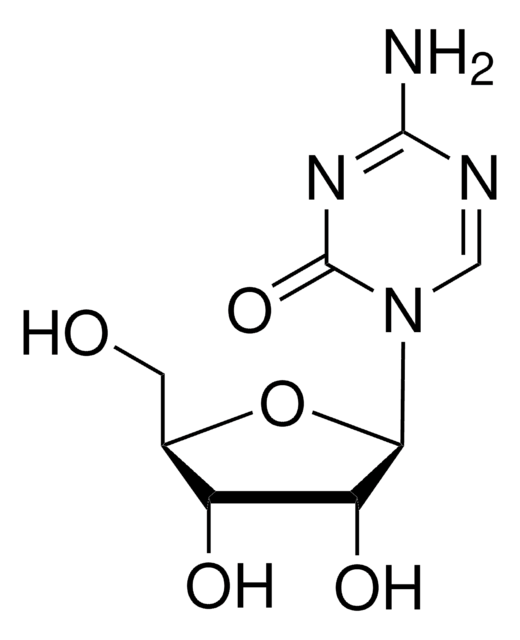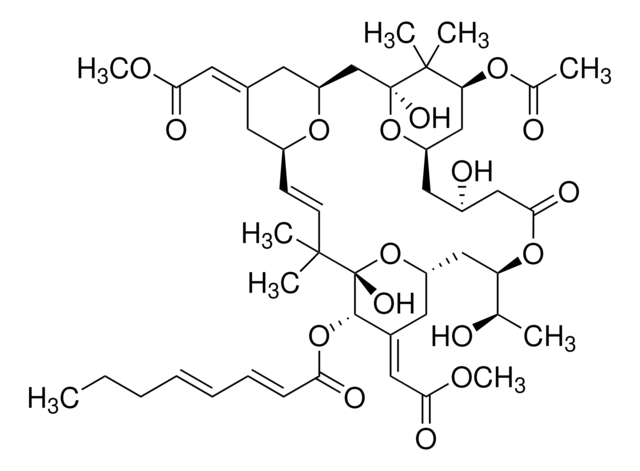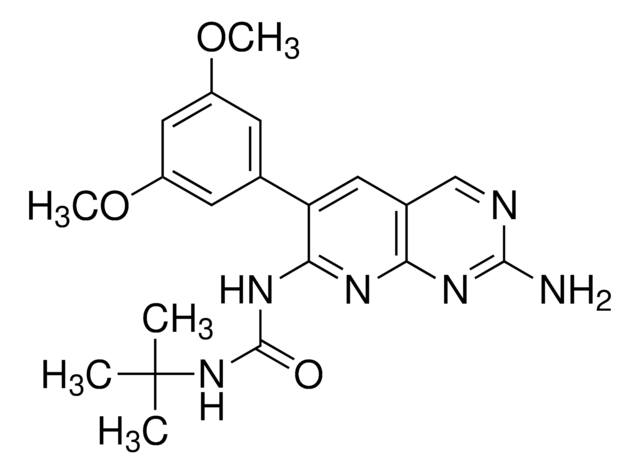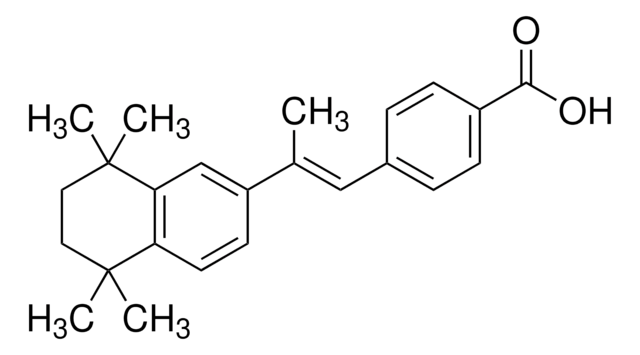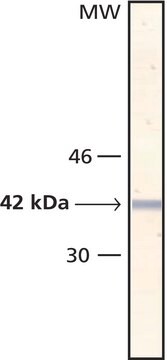P1269
Phorbol 12,13-dibutyrate
≥98% (TLC), powder, PKC activator
Synonym(s):
PDBu
About This Item
Recommended Products
product name
Phorbol 12,13-dibutyrate, ≥98% (TLC), powder
Quality Level
Assay
≥98% (TLC)
form
powder
color
clear light yellow, film
solubility
H2O: 30 μM
DMSO: soluble
acetone: soluble
ethanol: soluble
storage temp.
−20°C
SMILES string
CCCC(=O)O[C@@H]1[C@@H](C)[C@@]2(O)[C@@H](C=C(CO)C[C@@]3(O)[C@H]2C=C(C)C3=O)[C@@H]4C(C)(C)[C@]14OC(=O)CCC
InChI
1S/C28H40O8/c1-7-9-20(30)35-24-16(4)27(34)18(22-25(5,6)28(22,24)36-21(31)10-8-2)12-17(14-29)13-26(33)19(27)11-15(3)23(26)32/h11-12,16,18-19,22,24,29,33-34H,7-10,13-14H2,1-6H3/t16-,18+,19-,22-,24-,26-,27-,28-/m1/s1
InChI key
BQJRUJTZSGYBEZ-YVQNUNKESA-N
Gene Information
mouse ... Prkcd(18753)
Looking for similar products? Visit Product Comparison Guide
Application
Biochem/physiol Actions
Features and Benefits
Caution
Reconstitution
Signal Word
Danger
Hazard Statements
Precautionary Statements
Hazard Classifications
Acute Tox. 1 Dermal - Acute Tox. 1 Inhalation - Acute Tox. 2 Oral - Carc. 2 - Eye Dam. 1 - Resp. Sens. 1 - Skin Corr. 1B - Skin Sens. 1
Storage Class Code
6.1A - Combustible acute toxic Cat. 1 and 2 / very toxic hazardous materials
WGK
WGK 3
Flash Point(F)
Not applicable
Flash Point(C)
Not applicable
Personal Protective Equipment
Certificates of Analysis (COA)
Search for Certificates of Analysis (COA) by entering the products Lot/Batch Number. Lot and Batch Numbers can be found on a product’s label following the words ‘Lot’ or ‘Batch’.
Already Own This Product?
Find documentation for the products that you have recently purchased in the Document Library.
Customers Also Viewed
Articles
Carcinogenesis and Epigenetics
Our team of scientists has experience in all areas of research including Life Science, Material Science, Chemical Synthesis, Chromatography, Analytical and many others.
Contact Technical Service



